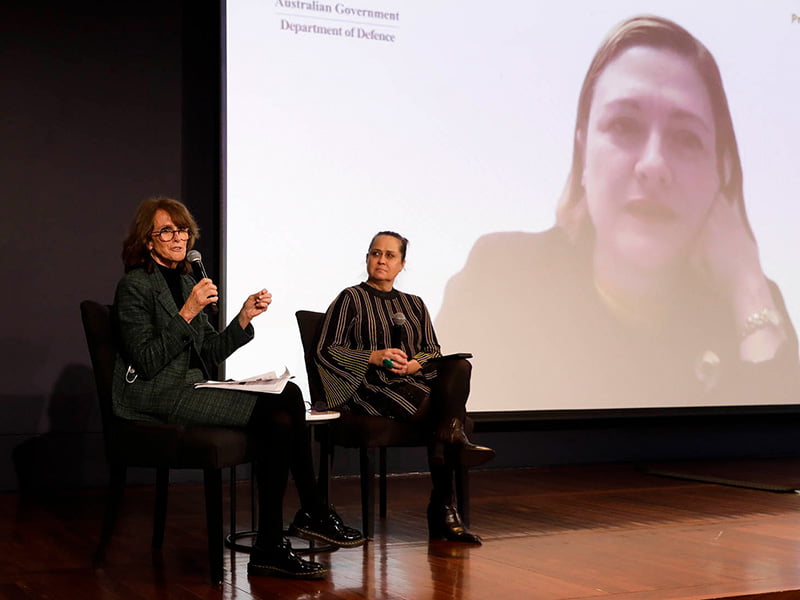Australia is at the start of a new paradigm in research translation, with a “structural change” needed in how academic success is measured, according to the nation’s Chief Scientist and Chief Defence Scientist.
Chief Scientist Dr Cathy Foley and Chief Defence Scientist Professor Tanya Monro spoke on a panel at the launch of The Innovation Papers in Canberra on Thursday, discussing Australia’s long-running research translation and commercialisation challenges and how to improve commercialisation outcomes.
Professor Monro said a transformation has already begun and that Australia is at the “beginning of a paradigm change”.
“We need to follow ideas through and find ways to build those networks so the people doing research deeply understand some of the problems they need to solve and they build relationships earlier with the potential end users of that research, and create a system where we can have mobility across it,” Professor Monro said at the event.
“It’s easier for people from different organisations to work together and to recognise and reward achievement of a different nature than a lot of our research institutions are used to.”

There are still significant roadblocks for Australian academics looking to commercialise research, Dr Foley said.
“It’s like jumping off a cliff and waving goodbye – hopefully you have a parachute and you don’t hit the ground. We need a structural change in the way we measure what success looks like for our academics,” Dr Foley said at the event.
“The majority of people who are researchers don’t understand what IP ownership is. For example, unlike research publications, patents need to have the right people as the inventors otherwise it’s null – you can’t have honorary authors. That’s such a critical first step and that’s not known by most researchers.”
Both the Chief Scientist and the Chief Defence Scientist said Australia needs to have greater ambitions.
“We need a national ambition. The country has, I think, a really new ambition to say we can do it here. In the past we’ve had this idea that we dig it up, send it overseas and don’t add value to it. It’s almost like we’ve got this mentality that we’re not good enough,” Dr Foley said.
“We’re the 13th biggest economy in the world – we’ve got things like quantum where we have invested for decades and we’ve got a real opportunity to take this to the next level and be something that we’re a real quantum industry, that’s part of a global network.
“We can manufacture here and take companies and grow them. We need to trust in ourselves and say we can do it, we’ve got the capacity and we’ve got the ambition of a government that wants to do this.”
Often other nations are better at recognising Australia’s strengths than we are, Professor Monro said.
“I’ll know we’ve got there when it no longer requires my US counterparts to tell us how good we are, we will just know it,” she said.
A regular notion at the Innovation Papers event was that Australia needs local primes in multiple sectors to help shore up sovereign supply chains and boost the local economy, providing opportunity for smaller contractors.
“That interconnection with primes and emerging companies is absolutely critical. Emerging companies provide the agility and primes provide a safe environment for that,” Professor Monro said.
“That’s something we need to get better at as a nation – at fostering and recognising that each part of that ecosystem has a distinct strength and can’t operate separately from each other.
“It’s not acceptable to expect a prime to move at the speed an SME can, but we need them to create that environment in which the innovators can come in and show the utility of their innovation and get it in the hands of the primes.”
Do you know more? Contact James Riley via Email.

